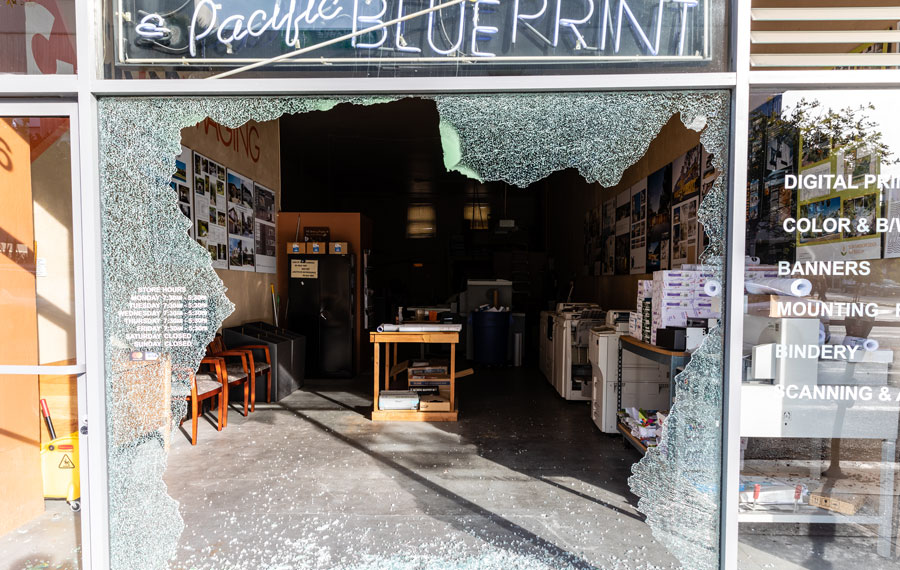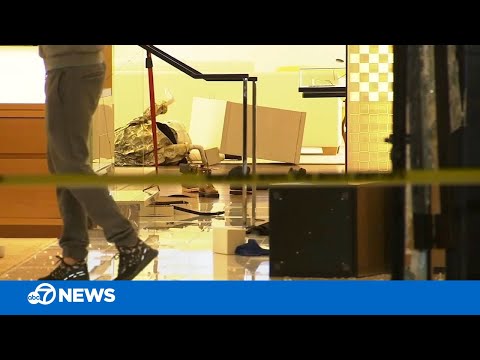
SAN FRANCISCO, CA – While the state of California – in particular, the city of San Francisco – is in the grip of a smash-and-grab crime wave afflicting retailers left and right, reporters in the beleaguered state appear more worried about the terms being used to describe the crime than actually stopping the crime itself.
According to a recent report by ABC7 News Bay Area TV’s Race and Social Justice reporter Julian Glover, describing the recent wave of smash-and-grab retail theft – which typically sees large groups of individuals swarm stores, overwhelm employees, and make off with thousands of dollars in merchandise – as “looting” is racist because the term is typically associated with “people of color.”
Lorenzo Boyd, Professor of Criminal Justice and Community Policing at the University of New Haven, claimed to Glover during the segment that the term “looting” is not usually used when White people engage in the same crime as Blacks.
“Looting is a term that we typically use when people of color or urban dwellers are doing something,” Boyd said. “We tend not to use that term for other people when they do the exact same thing. (https://charleseitel.com/) ”
During his report, Glover also quibbled over the legal definition of “looting” as it pertains to its usage by police – which California defines as theft that takes place during a state of emergency brought on by a natural or man-made disaster – saying that authorities are not using the term to describe the criminals in question properly.
“If you look up the California law, which I spent some time doing today, the answer is no,” he said. “According to the textbook definition, these thefts did not happen under any type of state of emergency or disaster, but we know that some Bay Area police departments are calling what we saw looting. Others are simply calling it organized robbery.”
During the report, no mention was made of the recent murder of Kevin Nishita, a former decorated police officer and father of two who was providing security for a television crew covering a smash-and-grab theft at a store in Oakland, California. According to reports, Nishita was fatally shot in the stomach after looters tried to grab the camera crew’s equipment and he attempted to intervene.
Likewise, the vast amounts of retail loss experienced in the Bay Area – numbering in the hundreds of thousands of dollars just last week alone – were only briefly touched upon in the report.
Glover instead seemed to focus almost solely on policing the language the public uses to describe crime and the individuals who commit it.
“If you determine allegories that you use are tethered to people’s understanding of how they have been used in the past and experts stress the importance of media literacy for viewers like you out there,” he said. “That’s thinking critically about the language being used by public officials and also us here in the media. The bottom line words matter and precision is key, as we’re all trying to understand these complex issues facing our society.”




Comments are closed.